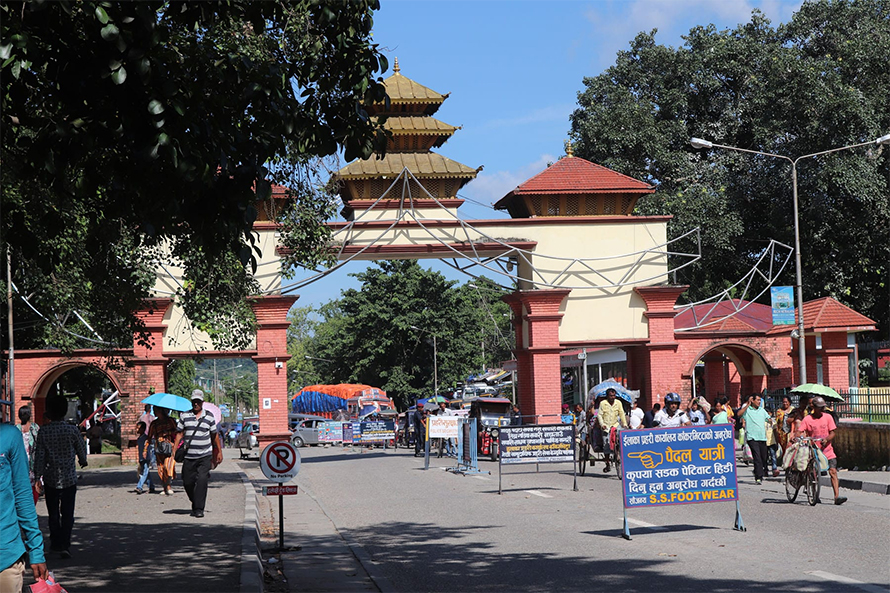

KATHMANDU: Nepal’s supply chain was brought to a standstill earlier this week as violent protests during the Gen-Z movement disrupted customs operations along the India–Nepal border.
Customs offices at Mechi, Biratnagar, Bhairahawa, Dhangadhi, and Bhardpur were vandalized, forcing the Department of Customs to make emergency arrangements.
The protests targeted government offices, including critical border customs posts, leaving officials unable to process imports and exports for three consecutive days.
Trucks loaded with fuel, LPG, food, and medicines remained stranded, while empty vehicles returning to India were blocked. The disruption left goods worth billions of rupees stuck on both sides of the border.
Nepal’s economic reliance on India for fuel, LPG, food staples, medicines, construction materials, and consumer goods magnifies the impact of any disruption.
Nearly all imports from third countries transit through India. In the first month of fiscal year 2025/26, Nepal imported Rs 83.53 billion worth of goods from India and exported only Rs 19.45 billion, resulting in a trade deficit of Rs 64.08 billion.
Northern border points with China remain closed, eliminating alternatives. Customs officials have shifted operations to safer locations, such as Birgunj dry port. On Thursday, 35 trucks were cleared at Kakarbhitta, 300 at Biratnagar, 50 at Birgunj, 300 at Bhairahawa, and 140 at Nepalgunj.
From Birgunj alone, 53 petroleum tankers and 117 vehicles carrying LPG and medicines entered Nepal, while 200 empty trucks returned to India. Despite these efforts, many offices remain damaged, and full operations are not yet restored.
Officials and traders have assured the public that stocks of rice, lentils, flour, pulses, and cooking oil are adequate. Warehouses hold more than a month’s reserves, and domestic mills are operating.
However, distribution could be uneven, particularly in smaller towns and rural areas, and panic buying may exacerbate localized shortages.
Unlike food grains, Nepal has limited reserves of petroleum and LPG. The Nepal LP Gas Industries Association warned that delays could disrupt household cooking gas supply. Petroleum tankers are entering through Birgunj, but distribution is uneven.
Medicines have begun to arrive, though persistent customs delays could affect the health sector. Fast-moving consumer goods may also see price increases due to uneven distribution.
Market prices for vegetables, fruits, and household goods are creeping upward. Retailers report increased precautionary buying, particularly for rice, oil, and pulses.
Dashain, Tihar, and Chhath are approaching, traditionally peak periods for consumption and shopping. Business federations have called on the government to expedite customs clearance to stabilize supply and prevent price surges.
Temporary customs offices and mobile infrastructure have been deployed to process stranded goods, with priority given to fuel, LPG, medicines, and food. Police escorts ensure the safe movement of convoys from border points.
On Thursday, over 900 vehicles were cleared, with Birgunj handling the majority of petroleum and LPG imports. Indian authorities have cooperated, keeping their offices open to facilitate cross-border trade.
Officials have urged the public not to panic, emphasizing sufficient food stocks, and are working to restore full customs capacity before the peak festive shopping season. The private sector continues to push for faster action to avoid price inflation and maintain consumer confidence.